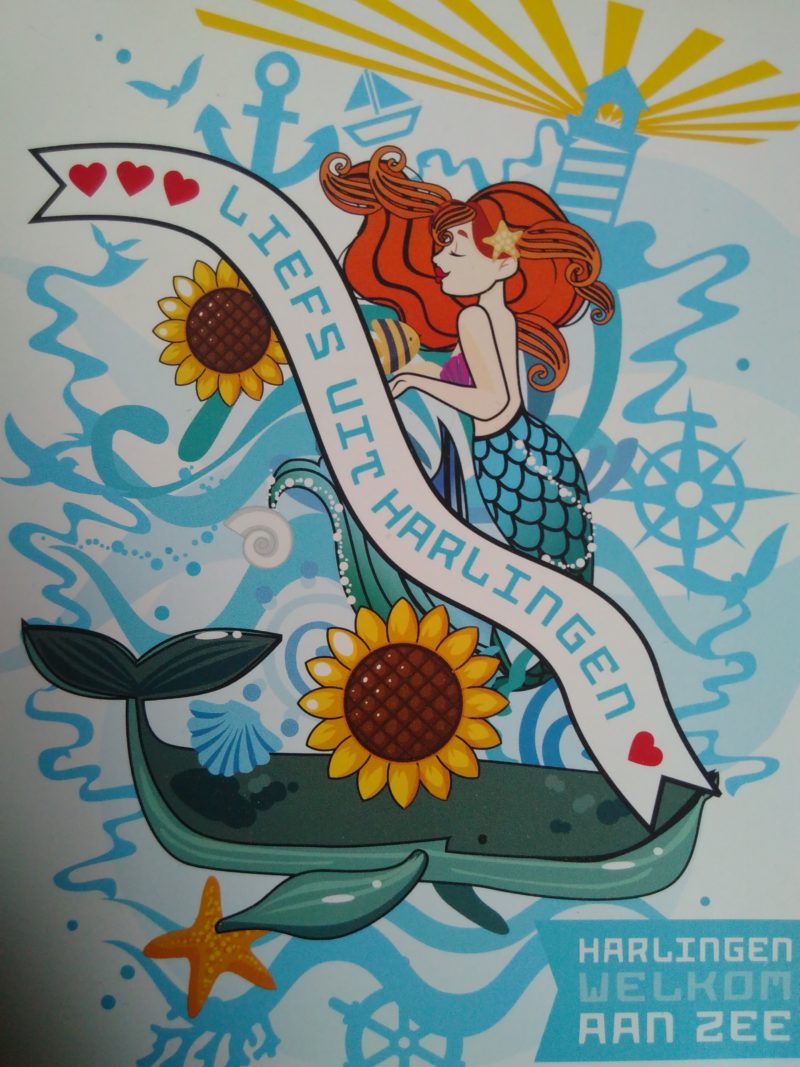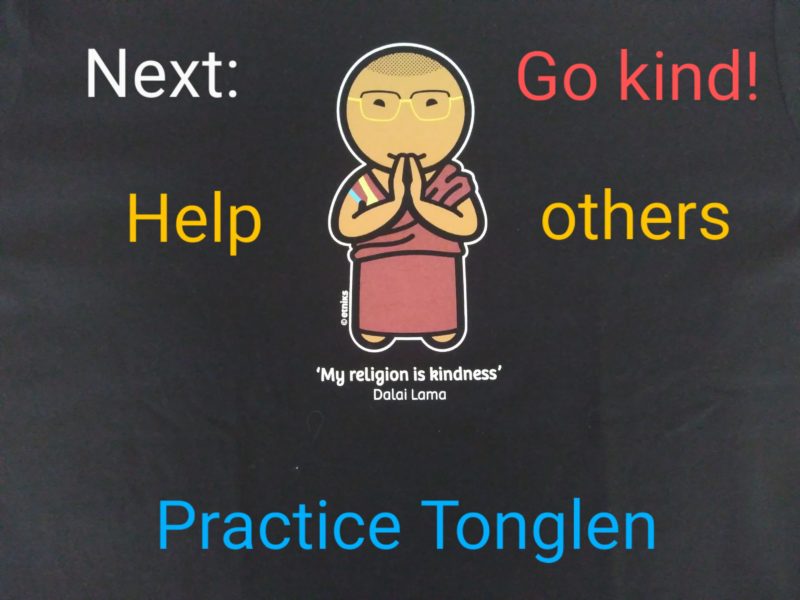What is mind? Though we seem so intimately familiar with our own mind, nonetheless this is one of the most difficult questions to answer. In philosophy nowadays it is part of what is known as ’the hard problem’. How and why is it that we experience something at all?
(You can also listen to this on my SoundCloud as part of my Dharma-bites)
Subjective experience
It is clear that ‘we’ have a sense of pleasure and pain, happiness and sadness, joy and sorrow. It is not without reason that we call those beings who have such experiences ‘sentient’. Which might not only include humans. Which creatures belong to this category and which don’t is strongly debated. Besides, some say, ‘sentient’ does not necessarily mean there is also consciousness. And having consciousness does not imply awareness.
You can see, ‘mind’ is clearly a very complicated topic that raises many questions. What seems undeniable, however, is that you, like me, and probably many other non-human beings, have a subjective experience. We have sensations, emotions and thoughts. As intriguing as the issue of mind can be, this is true for all of us. At least, assuming the one who reads this – someone you refer to as ‘you’ – does indeed have a mind.
Work with the mind wisely
Some wisdom traditions, like the ancient philosophical school of Stoicism or Buddhism, have developed very detailed views about our ‘mind’. At the same time, they are very pragmatic: we have a particular experience, and we judge this as either pleasant, neutral or unpleasant. Putting aside the possible truth about mind on an ‘ontological’ level – what is real, what exists – we have to deal with this. Thus, they ask: how do we work with the mind wisely?
It is not a coincidence that I mention specifically these two traditions. They seem to share a similar criterion to determine a wise way to work with or train our mind. Moreover, both put their focus on the mind rather than ‘others’ or ’the world’. Our mind, they hold, seems to be the main reason why we are at ease in our life or upset. Why we experience inner peace or suffer. ‘Wise’ then is simply that which leads to the first and gets rid of the second.
Whether you feel more drawn to the approach of the Stoics or Buddhists, they agree that constant practice & training is required. The former would speak about logic, Socratic dialogue and paying attention to the present moment. The latter uses the terms of ‘hearing’ (or ‘studying’), ‘contemplating’ and ‘meditating’. On an experiential level, however, they seem very much like each other. In any case, again, they share that to realise something like ‘inner peace’ or ‘enlightenment’, and no longer ‘suffer’ in daily life, we need to work with our mind wisely.
The view is not the point, praxis is
I personally enjoy the philosophical or theoretical conversations about the nature of our mind and reality. I have often found myself engaging in academic discussions about this, be it with philosophers, scientists or theologians. Living in Jerusalem for a while has been particularly wonderful to me. Not only because these three ‘spheres’ – philosophy, science, theology – often crossed each other’s path. But also because I felt, as many others, that something was at stake. Our ‘view’ about ‘mind’, has direct implications for our daily life.
In other words, it is important and can be a lot of fun to analyse thoroughly and debate our views fiercely. At the same time, I feel it is important to remember why that conversation really matters. It is because we all share the same longing for peace & happiness, and wish to avoid suffering. Thus, we want to figure out how to do so.
In academia this pragmatic or practical part is often forgotten nowadays. But philosophy, religion or spirituality without praxis – embodiment, realisation, connection to daily life – seems meaningless. Or simply misses the crucial point.
We can recognize this for example in the work of the philosopher Spinoza (1632 – 1677), who was strongly influenced by the Stoics. He developed a very sophisticated metaphysical system and views about mind and emotions. Yet, this is instrumental: the ultimate aim, he writes, is to find freedom and happiness. Whether Spinoza and Buddhism hold a similar view and praxis? I am not sure. Who knows I might explore this further in the future.
Mind as a guesthouse
Recently, both the more ’theoretical’ discussion and the element of praxis was part of a conversation in our Fresh Minds group at NalandaWest. There we are discussing the book In love with the world by the buddhist monk & teacher Yongey Mingyur Rinpoche. To understand mind, specifically awareness, and to feel and actively work with it as well, buddhist tradition often presents metaphors. One possible way to approach the mind is to view it like a guesthouse. As Mingyur Rinpoche writes:
“Every type of traveler passes through – sensations, emotions, everything. Every type is welcome. No exceptions. But sometimes a traveler causes a little trouble, and that one needs some special help.”
Meditation, the praxis that is at the very heart of Buddhism, is essentially to become aware of the guests that arrive and welcome them. Whether it is a feeling of anger, hatred, shame, or another unpleasant experience. The same also goes for kindness, compassion and joy. The first set of experiences are considered ‘negative’ in the sense that they contribute to suffering. Whereas the second are ‘positive’ in the sense that they support finding inner peace or enlightenment.
Viewing the mind as a guesthouse is to me a very powerful metaphor and practical approach. It helps me to understand that the mind is not identical with the sensations, feelings or thoughts that show up in my life. The first is the host (and her or his house). The second are guests – they come, but they also leave. Some guests will be pleasant to us, others neutral and few (or many?!) very unpleasant.
In addition, it will depend on us, the host, how these guests will behave while they are staying. If we treat our guests with kindness and compassion, they will contribute to peace and joy in our guesthouse. If we treat them badly, they will cause a lot of trouble. One difference perhaps with having a ‘real’ guesthouse is that those we treat badly or tell they are not welcome, will continue to return. We, whether we like it or not, can not simply kick them out. Moreover, if we do not attend to our guests, they will settle in and it becomes increasingly difficult to get rid of them.
For example, when I am writing, like at this moment, I often sense joy and excitement. But I also experience fear and anxiety at times. I am afraid of what people might think & feel about my article. Or I am self-critical whether my writing is of good quality. Ignoring this, does not mean my fear and anxieties go away. Rejecting them makes these guests even stay longer and increase in strength.
Yet, if I start to welcome them, approach them as a ‘good host’ of a guesthouse, sit down together in the living room for a cup of tea, things start to change. They will not leave immediately, but that day will come sooner rather than later. One can perhaps say: if I ignore or reject this, it is like locking their door and pretending as if this guest is not staying. It is not difficult to imagine what a mess that room will be like after a while. And the yelling and screaming, or even destroying the windows and so on, this might cause.
However, if we listen and feel what this guest has to tell us, he / she will most likely pack his / her bags and leave quietly and comfortably. Perhaps to return again. Some day in the future. But now we know how to treat them, and see them come and go with an honest smile. Honest, because we all know how we feel if a host is just pretending or acts to be kind to us. It does not work. We will rate that host with 1 star on social media and booking platforms, and make harsh comments.
Compassion for other hosts
In our Fresh Minds Group we noticed a further element to this metaphor of the mind as a guesthouse. If we meet someone in daily life we quickly have all kinds of judgements and label him or her (or whatever in-between or beyond one might feel these days) in all kinds of ways. Kind or unkind. Warm or cold. Respectful or disrespectful. We do so based on the thoughts, emotions and feelings one expresses to us. In other words, the guests that stay in the rooms of this person.
We think the host is the same as the guests that are staying, but this is not true. The other person is, like you, the host. A mind. And not its guests – the thoughts, emotions and feelings. And like ourselves we can perfectly understand how one can have difficult guests at times and thus perhaps not be able to be a good host for a short moment or even longer period.
If we recognize this, then naturally compassion and loving-kindness arises. We wish the other person to be free from guests that cause suffering (compassion) and to have travelers that are easily enjoyable (loving-kindness). In other words, we want the other – like ourselves – not to go through pain & suffering and experience inner peace and happiness instead.
Questions
Metaphors are never perfect. They can only point, or touch, reality to a certain extent. Yet, I feel that approaching our mind as a guesthouse is powerful. It helps me to learn that I need to be a good host to any traveler and how I can do this. Sometimes I will succeed, and often I will fail. But that is what life is like, isn’t it?
The metaphor obviously leaves us with some questions. If we are not our thoughts, emotions and feelings – the guests – then what or who exactly are we? What or who is this host? And is it necessarily true, as the Stoics and Buddhists say, that every host is by nature friendly and capable of treating all guests with kindness, compassion, joy and with a sense of equanimity? Why would this be so?
There is, I would say, only one way to find out. If we keep our guesthouse closed our entire life, things will stay the same as they are now. With all the guests we are already familiar with. In that case it is more like they have taken the key and locked their doors. Every room is occupied and we are extremely busy with them. We will need to sit at each door and start a conversation with the one on the other side. Sometimes this might be necessary. But ideally we want to keep hold of the keys and let guests be precisely that: guests. That way our guesthouse is open to any traveler and we can enjoy being a good host.
And if I visit someone else and the guesthouse seems to be a complete mess? Just remind yourself that this person, just like you, keeps practicing and training to be a good host as well. Isn’t that what, eventually, we all aspire to be: a welcoming host to anyone and a kind guest if we visit someone else? Writing that question in your guestbook is where I’ll leave you for the moment. Till we meet again.




